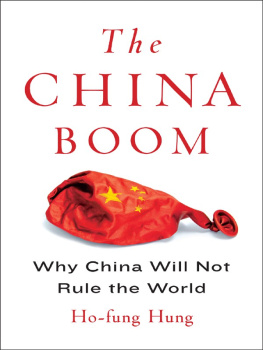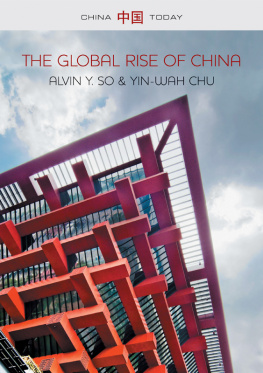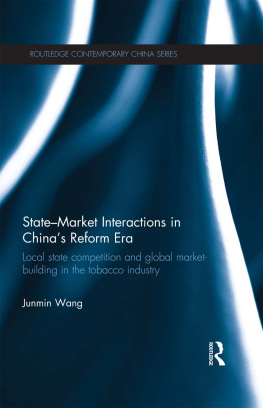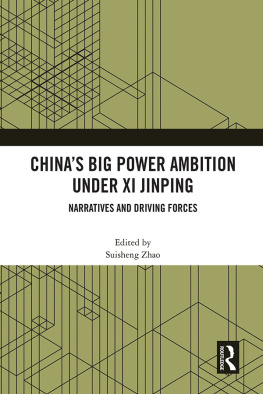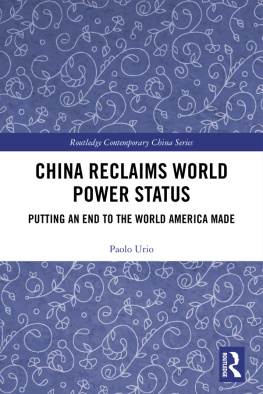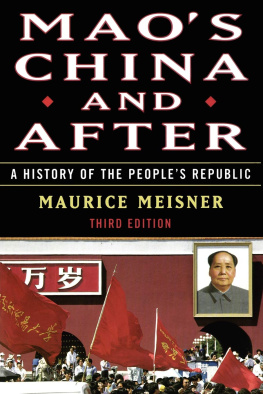The China Boom
CONTEMPORARY ASIA IN THE WORLD
CONTEMPORARY ASIA IN THE WORLD
DAVID C. KANG AND VICTOR D. CHA, EDITORS
This series aims to address a gap in the public-policy and scholarly discussion of Asia. It seeks to promote books and studies that are on the cutting edge of their disciplines or promote multidisciplinary or interdisciplinary research but are also accessible to a wider readership. The editors seek to showcase the best scholarly and public-policy arguments on Asia from any field, including politics, history, economics, and cultural studies.
Beyond the Final Score: The Politics of Sport in Asia, Victor D. Cha, 2008
The Power of the Internet in China: Citizen Activism Online, Guobin Yang, 2009
China and India: Prospects for Peace, Jonathan Holslag, 2010
India, Pakistan, and the Bomb: Debating Nuclear Stability in South Asia, umit Ganguly and S. Paul Kapur, 2010
Living with the Dragon: How the American Public Views the Rise of China, Benjamin I. Page and Tao Xie, 2010
East Asia Before the West: Five Centuries of Trade and Tribute, David C. Kang, 2010
Harmony and War: Confucian Culture and Chinese Power Politics, Yuan-Kang Wang, 2011
Strong Society, Smart State: The Rise of Public Opinion in Chinas Japan Policy, James Reilly, 2012
Asias Space Race: National Motivations, Regional Rivalries, and International Risks, James Clay Moltz, 2012
Never Forget National Humiliation: Historical Memory in Chinese Politics and Foreign Relations, Zheng Wang, 2012
Green Innovation in China: Chinas Wind Power Industry and the Global Transition to a Low-Carbon Economy, Joanna I. Lewis, 2013
The Great Kant Earthquake and the Chimera of National Reconstruction in Japan, J. Charles Schencking, 2013
Security and Profit in Chinas Energy Policy: Hedging Against Risk, ystein Tunsj, 2013
Return of the Dragon: Rising China and Regional Security, Denny Roy, 2013
Contemporary Japanese Politics: Institutional Changes and Power Shifts, Tomohito Shinoda, 2013
Contentious Activism and Inter-Korean Relations, Danielle L. Chubb, 2014
Dams and Development in China: The Moral Economy of Water and Power, Bryan Tilt, 2014
Marching Through Suffering: Loss and Survival in North Korea, Sandra Fahy, 2015
The JapanSouth Korea Identity Clash: East Asian Security and the United States, Brad Glosserman and Scott Snyder, 2015
Nation at Play: A History of Sport in India, Ronojoy Sen, 2015
The China Boom
WHY CHINA WILL NOT RULE THE WORLD
Ho-fung Hung
COLUMBIA UNIVERSITY PRESS NEW YORK
COLUMBIA UNIVERSITY PRESS
Publishers Since 1893
New York Chichester, West Sussex
cup.columbia.edu
Copyright 2016 Columbia University Press
All rights reserved
E-ISBN 978-0-231-54022-3
Library of Congress Cataloging-in-Publication Data
Hung, Ho-fung.
The China boom : why China will not rule the world / Ho-Fung Hung.
pages cm. (Contemporary Asia in the world)
Includes bibliographical references and index.
ISBN 978-0-231-16418-4 (cloth : alk. paper) ISBN 978-0-231-54022-3 (e-book)
1. Economic developmentChinaHistory. 2. CapitalismChinaHistory. 3. ChinaEconomic policy1949 4. ChinaForeign economic relations. 5. ChinaForeign relations1949 6. ChinaEconomic conditions1949 7. ChinaSocial conditions1949 I. Title.
HC427.9.H896 2015
330.951dc23
2015009582
A Columbia University Press E-book.
CUP would be pleased to hear about your reading experience with this e-book at .
COVER DESIGN BY CHRIS SERGIO; COVER IMAGE SHUTTERSTOCK
BOOK DESIGN BY VIN DANG
References to websites (URLs) were accurate at the time of writing. Neither the author nor Columbia University Press is responsible for URLs that may have expired or changed since the manuscript was prepared.
TO MY MOTHER
Contents
ILLUSTRATIONS
TABLES
IN 1769, French philosopher Voltaire wrote that in China, everything is decided by the great tribunals, subordinate to one another, whose members are admitted only after several stringent examinations. It is impossible under such an administration for the emperor to exercise an arbitrary power. Now if there has ever been a state in which the life, honor, and welfare of men has been protected by laws, it is the empire of China. What should our European princes do when they hear of such examples? Admire and blush, but above all imitate. From todays perspective, Voltaires idealization of imperial China seems ludicrous. In the Enlightenment, such a distorted view of China was not restricted to its admirers but could be found among other philosophers who were contemptuous of China. For example, Kant remarked that the concept of virtue and morality never entered the head of the Chinese, and Hegel once asserted that Chinese are interested only in highly tasteless prescriptions for cult and manners.
These romanticized or racist views of China from some of the best minds in Enlightenment Europe cannot be attributed solely to the lack of information about China at the time because early accounts of China by travelers, merchants, and missionaries were not without accurate information. Some of those accounts are still regarded as serious sources on imperial China. The Enlightenment thinkers distorted images of China show more about their politics in Europe. They used China, which enjoyed an economic prosperity and internal peace that fascinated Europe during the age of chinoiserie, as a polemical tool. Voltaire was a keen supporter of enlightened despotism and saw absolutist monarchs, such as his patron Frederick the Great, as progressive forces that warranted the eradication of aristocratic privileges. He portrayed China as the most successful model of such benign absolutism. But more radical Enlightenment philosophers who believed in popular sovereignty attacked absolutism by portraying a dark China where society and culture rotted under despotism.
Even though much information about China is available for global consumption nowadays, popular and scholarly writings on China, whose rising economic and political clout in the world attracts wide attention in the West, are still often distorted by the authors political dispositions in their home countries. Whereas some use the image of a mighty, impeccable, and radically distinct China to support their critique of the allegedly corrupt and inefficient Western economic and political systems, some are keen to see China as the last stand of Communist dictatorship waiting to be swept away by free-market and liberal democracy.
What Voltaire and Hegel wrote about China as an exotic other had little direct effect on development within China (though some of these writings were later used to justify Western imperialist encroachment). In todays more interconnected world, where Western hegemony in the world system of knowledge production persists, Western accounts of China are instantly accessible in China despite government censorship there, generating significant effects on Chinas self-conception. Conservative forces in China are never shy of employing Western praise of the China model to defend the status quo, and quite a few dissident intellectuals uncritically adopt Western contempt of China to support their call for total westernization, even to the point of hailing Western intervention as a liberating force.

